"We will never be a leader in client service" a senior AMK manager told me. Indeed in the competitive Cambodian microfinance market many clients might choose another microfinance institution over AMK as its loan disbursement is slower and more time-consuming for clients and its loan sizes are smaller. Coming from an organisation that is proudly client focused, this struck me as strange.
AMK, serving more than 360,000 people, is now the largest MFI in Cambodia in terms of outreach. How can an organisation that invests heavily in understanding and responding to the needs of its clients be less customer friendly than others? Answering this question gets to the heart of the approach of an organisation that has often taken the “road less travelled” in the way it does business. If fast loan disbursement (which clients might prefer, and which other MFIs are prepared to provide) means compromising the detailed loan appraisal process that ensures the success of a client’s investment and ensures they are not over-indebted, AMK is just not interested. AMK recognises the importance of matching loans to client capacity to repay, not just whether they have sufficient collateral to cover them in the event of a default. Central to the appraisal process is a visit to the client’s home which experience has shown is critical to get an accurate understanding of the client’s situation. This takes time, is hard work for staff, and involves some inconvenience for clients. Other MFIs have long abandoned this step, but AMK has made this a mandatory part of their lending process, and implemented a “zero-tolerance” policy, with disciplinary action for client officers who neglect the visit, and checks as part of the internal audit process.
This example illustrates two of the founding principles of AMK. First, AMK tries to make data-driven decisions that are informed by detailed research and client feedback and not staff perception of what is best for clients or what they want. This led to some important product innovations such as a credit line loan that cut costs for clients by allowing them to draw down their loans when they need them, rather than paying interest on capital that is not being used. Second is a recognition of the risks created by taking on debt, and a responsibility to take every measure possible to protect clients from harm. This is reflected in products to help clients manage risk and cope with shocks such as emergency loans, micro-insurance, savings, as well as a recognition that when things go wrong for good client harassing them for repayment or seizing assets hurts the client and certainly does not build client loyalty. Instead AMK takes a ‘soft-collections’ approach that emphasises problem solving. In this way, AMK was a pioneer in establishing a set of client protection principles in 2005, long before this was an industry focus.
But AMK’s business model is not just about doing what is best for its clients. The third founding principle is a commitment to sound financial discipline at all levels. AMK seeks the “sweet spot” that balances client benefit and protection with commercial success. In a highly competitive market, an approach that seeks scale and financial viability for all products and services, has been at the heart of AMK’s rapid growth. Not only this, but AMK has consistently achieved a depth of poverty outreach unrivalled by most other institutions.
AMK set itself clear goals in terms of poverty outreach, and translated this into a growth strategy that targeted the most remote and rural areas of the country. This was challenging and costly, particularly in a country where it could take 6 hours to drive 150km, and field staff report sleeping in the forest overnight when rivers became impassable. But AMK built a business model to make this possible – products were tailored to fit client need leading to high levels of retention and low arrears; staff were asked to achieve high levels of productivity; costs were carefully managed.
Overall, what is notable about AMK is not the specific decisions it has made, but the way in which it has made these decisions. At the core has been an understanding of the poor, rural Cambodians it targets. Research and feedback from clients has driven the design of products and services, the choice of where to work, the staff training, induction and performance management systems, the information systems, the key performance indicators and board reporting. Mistakes have been made along the way – weaknesses in product design and staff short-cuts in key operational areas, but AMK has learnt from these and emerged a stronger organisation.
It has been a long journey. One that illustrates the choices and decisions that all businesses committed to building their commercial success on the success of their clients need to negotiate.
First published on the Business Innovation Facility Blog.

